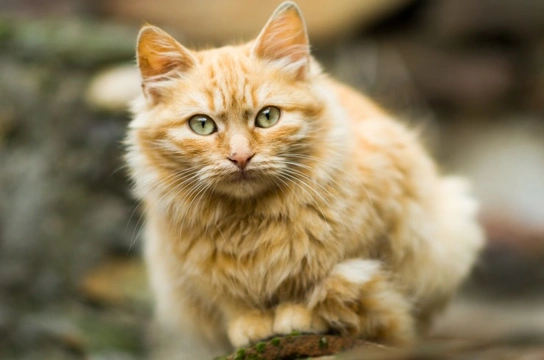
Chronic Coughing in Cats
When cats develop a persistent cough, it is usually because they are suffering from an underlying health issue. This could either be a cardiovascular system disorder or a respiratory disease. When it is the latter, the actual act of coughing is the best way for a cat to prevent any build-up in their respiratory tract. With this said, chronic coughing in cats can also be a sign of them developing a serious respiratory disease and as such a trip to the vet would be necessary to establish the root cause of the problem sooner rather than later.
Signs to Watch Out For
In most cases when cats start coughing it is intermittently, but this can soon turn into something more worrying and serious. As the coughing becomes more persistent, cats typically show the following signs that their condition may be worsening:
- Vomiting
- Coughing up blood
- Sudden collapse
The Causes
There could be several reasons why a cat starts coughing incessantly, bearing in mind that the act of coughing in an automatic, involuntary behaviour which happens when a cat's airways need to be unblocked. As such, any breed of cat at any stage of their lives might start coughing which in medical terms is referred to as tussis"". With this said, a blockage in a cat's airways can be caused by many things and this includes the following conditions:
- Respiratory tract disorders including infections whether bacterial, viral or parasitic
- Tumours which have developed in a cat's throat
- Aspiration pneumonia which is when food or something else is swallowed by a cat and it enters their respiratory tract rather than their digestive tract
- A foreign body stuck in a cat's respiratory tract
- Allergies
- Heart disease
Diagnosing the Problem
A vet would need to have a cat's full medical history and ideally know how the onset of any symptoms first manifested themselves. When a cat sneezes or coughs, it can be due to many other things and a vet would need to confirm their diagnosis by closely monitoring how a cat sneezes and coughs, taking into account how long each episode lasts as well as how often they occur. The vet would then decide whether a cough is ""productive"" or ""non-productive"" by making a cat cough on purpose. When a cough is ""productive"" a cat would typically expel the following:
- Fluid
- Mucous
- Some sort of secretion
Should a cat's cough be ""non-productive"" it would be a dry cough and nothing is expelled either from the mouth or nose. The vet would also recommend carrying out the following tests which would not only help rule out other diseases and disorders that may be causing the symptoms, but would help confirm a diagnosis:
- A complete blood count - this would help rule out any infections or allergies
- A biochemistrty profile - this would establish if a cat has higher than normal liver enzymes or any other sort of abnormality
- A urinalysis
- X-rays
- CT scan
- MRI scan
- A laryngoscope, tracheoscope or bronchoscope which offers a direct look at a cat's upper respiratory tract
Treatment Options
A vet would need to treat the underlying cause of a cat's chronic cough while at the same time treating the cough itself. Should a cat's condition be severe, they may need to be hospitalised so they can be closely monitored and given intensive treatment until they can be stabilised. This may include cats being put on oxygen and given a broad spectrum of antibiotics. Prescribing just a cough suppressant would not typically be enough as the underlying cause needs to be investigated and treated before a cat's cough gets any worse.
Living with a Cat with a Chronic Cough
It may take some time for a vet to discover the underlying cause of a cat's chronic cough and they would typically prescribe a course of antibiotics which must be completed when a cat is allowed home for the treatment to be effective. A cat would also need to have follow-up visits with the vet to make sure the treatment is working and to ensure their condition is improving. If it is found to be worsening, a new treatment would need to be started which could involve longer term therapy.
""



